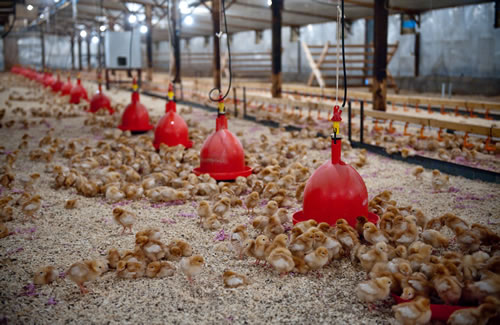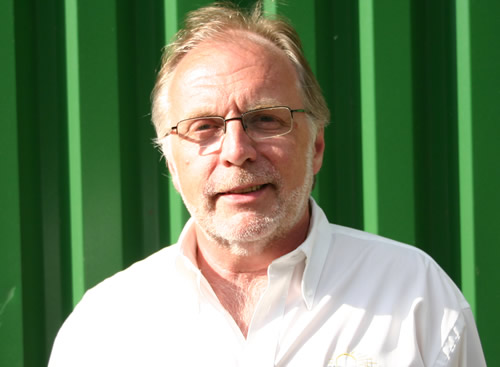
Organic egg producers could face a shortage of pullets unless EU leaders reach an early decision on new regulations to be applied from January 2012.
Producers, pullet rearers and certifiers have all expressed concern that EU indecision could have serious consequences for the industry. Pullets for organic systems are currently required only to be raised to organic feed and veterinary standards. However, the EU derogation under which this arrangement exists comes to an end for 2012. It is expected that full organic standards may then be applied, although the industry is still waiting for politicians to decide exactly what rules will be enforced. Full organic standards would require organic conversion of land – a lengthy process in itself – but until the new EU rules are known, rearers are unlikely to begin conversion and embark on future investment.
"The derogation expires on December 31 2011. As yet the new pullet rearing regulations from that date forward have not been agreed," said Steve Carlisle of Country Fresh Pullets. "From the pullet rearers’ perspective, we cannot go ahead and do what we need to do until we know what we need to do."
He said pullet rearers may be required to convert land to organic. That process would take a year before rearing could begin. If the politicians made a decision on the new regulations today, rearers may just be able to produce organic pullets in time for the deadline, he said. "That is not going to happen. We are all pushing, but I think the derogation will need to be extended until the new regulations are agreed and pullet rearers are able to comply with those new regulations."

Organic Farmers & Growers told the Ranger that it had been holding talks with various parts of the sector about the issue.
"We are faced with some critical planning and infrastructure issues here," said chief executive Richard Jacobs. "Even assuming traditional rearers have outdoor space they can make available, and that’s far from a given, they won’t want to invest in that until any regulation changes are set in stone. Unfortunately we look like once again being faced with the EU leaving it far too late in the day to spell out concrete regulations, and it’s only fully adopted rules that will give the trade confidence to commit to the costs involved in meeting demand.
"If a predictable supply of organic pullets is not available come the beginning of 2012 we could see some serious problems in the sector. We need to do all we can, as soon as we can, to avoid that. We’ve been talking to industry bodies and rearers alike to ensure that key people are in loop with regard to the potential changes and the timescales we’re looking at," he said.
The Government’s Advisory Committee on Organic Standards (ACOS), of which Richard Jacobs is a member, has been examining the issue and industry bodies are talking to their members and to each other.
"The biggest problem here is timescales," said Richard Jacobs. "The UK discussions have to be concluded and then we will have to wait for EU discussion to begin. It will probably be at least six months before we see any proposed standards published for consultation. I do know of a major rearer who is willing to meet full organic standards, but they are, understandably, extremely nervous of committing expenditure until there are solid regulations and they know they won’t be disadvantaged by any late changes. Of course, even with a full commitment, rearers are going to need time to see through organic conversion of land, not to mention planning permission. So the timescale is extremely tight."
OF&G is calling for all stakeholders in organic poultry to ensure they are taking an interest in the issue and talking to their partners, suppliers and industry representatives. It says that only by constant communication will all parties be able to plan according to how the situation is developing.
BFREPA vice chairman Jeff Vergerson said the industry needed the politicians to come to a decision. "We are waiting for Brussels to agree what the new rules will be before we can start to think whether the existing pullet rearing businesses can adapt or whether it will have to go into new hands completely," he said. "If the rules are that the birds have to be reared on organic land and let out at whatever age they might be let out then a lot of the existing rearing sites would not be able to adapt. We don’t know what the stocking density is going to be on the land if they do have to be reared organically, so you don’t know how big a field you have got to have around a shed," he said. "We are very much in limbo land."
Jeff said some draft pullet rearing standards were being drawn up at the moment and could possibly go out to consultation over the next few months. They would form a draft of what the British suggestions would be in consultation with Brussels. "All the member states will be putting their own submissions in about what they think the rules should be."
Jeff agreed with Steve Carlisle that the derogation may well have to be extended beyond the current deadline to give farms the chance to comply with the new rules. "It will take 12 months to convert land, but before that it will probably take six to nine months to get planning permission to build a new rearing shed. You could put your land into conversion at the same time, but if you don’t get planning permission then you have wasted your conversion time. Then you have to rear the pullets – three weeks in the hatchery and 16 weeks in the rearing sheds. You also have to order your shed and get that built. I think we are all agreed that unless something comes out very, very quickly the derogation that expires in 2012 will have to be extended."
The Soil Association told the Ranger it was already moving towards fully organic pullets. "We’ve worked with our producers over the last eight years or more, towards achieving 100 per cent organic pullet supply in time for the end of the derogation within the regulation," the Soil Association said in a prepared statement. "Since 2000, when the organic regulation included livestock, there’s been a clear indication that the allowance to use non-organic pullets would be removed. There were two extensions to this derogation, initially extending it to 31st December 2004 and then to the current date of 31st December 2011.
"The last extension by the EU indicated that once written into the new organic regulation (889/2008), the dates would no longer be changed.
"There has always been a requirement for organic pullets to be used where they are available. However, when organic are not available it’s been possible to use non-organic pullets and convert them to produce organic eggs. As a result, up until now, there’s not been a strong enough incentive or market support to set up organic pullet rearing enterprises to supply the whole organic industry.
"We’ve worked hard to support our producers, matching supply with demand, assisting those wanting to rear their own pullets and helping larger, specialised pullet suppliers establish and maintain a sustainable market. We are now at a stage where the majority of Soil Association certified laying flocks are already using organic pullets.
"We continue to help our producers looking for organic pullets and help pullet rearers wishing to start supplying organic pullets in the future. The Soil Association trade and producer support team offer advice and plan to run related training events for producers wanting to produce organic pullets either for their own laying flocks or for wider sale."
Hi Peak Organic Feeds is one interested member of the industry that has expressed concern about possible shortages of organic pullets. The company’s organic feed advisor, Mike Burrows, said, "Organic poultry producers need guidance on the issue of pullet supply as a matter of urgency." He expects that pullets will have to have access to outdoor ranging from 2012 and he says that many established organic pullet rearing units will not have the facilities to accommodate this.
"Producers need to be discussing lines of supply to ensure the step to fully organic pullets is achieved. Any dilution to the proposal caused by a lack of direction at this stage would damage consumer confidence."
He said that organic certifiers needed to take the lead in preparing the sector for the deadline if major shortages were to be avoided. Hi Peak has written to the certification bodies pressing for "immediate attention" to ensure adequate pullet supplies.
